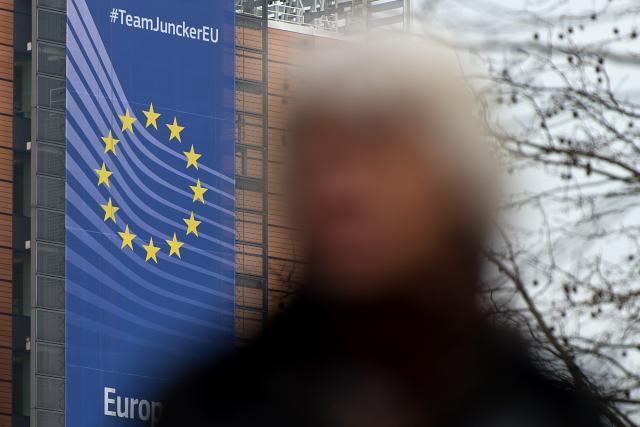Youth turning anti-EU; not even Russia makes NATO acceptable
53 percent of Serbian citizens believe the country should continue with its EU integration even after Britain's departure from the Union.
Thursday, 28.07.2016.
17:25

Youth turning anti-EU; not even Russia makes NATO acceptable
The poll was presented in its entirety on Thursday, while a summary was published earlier in the week.NGO's Tibor Moldovai, a psychologist, said that 51 percent of those aged 18-29 was in favor of ending Serbia's EU integration, while 43 percent think the opposite.
"Almost two thirds of older citizens support EU integration. The main finding of this survey is that young people are more reserved toward the EU and EU integration than those who are older, and also that they are more reserved toward European values," he said.
Presenting the conclusions of the survey, Naim Leo Beshiri, also from the Institute for European Affairs, said that citizens have "little information about Serbia's Euro-integration."
"Young respondents from rural areas and those without high education tend to have more controversial attitudes compared to the rest of the population. There is big support for Russia, while that for Euro-integration is diminishing. The attitude regarding Kosovo is very strong. Croatia is still seen as an enemy, while membership in NATO is supported mostly by women, residents of (the province of) Vojvodina, and people over the age of 60," he said.
When it comes to the support for Serbia's NATO membership - it stands at 12 percent, according to the NGO's survey, while 82 percent of respondents opposed the idea. At the same time, 44 percent said they think NATO membership is a condition for joining the EU.
Asked if they would support Serbia's membership in NATO "if Russia also became a member" - two thirds said they would not back the move even then.
Only 19 percent of young respondents would support Serbia's membership in the western military alliance under this scenario.
80 percent of Serbians think Kosovo should not be recognized as independent even if that was a condition for joining the EU, the poll has further shown.
The SNS party is seen as the biggest supporter of both closer relations with the EU (59.3 percent) and Russia (33.6 percent). Placing second are the Democrats (DS) and the DSS, when it comes to supporting the EU and Russia, respectively.
At the same time, 47 percent of respondents said they thought EU's economic situation was currently better than that of Russia.
41.3 percent see Russia as a friend of Serbia, followed by Greece (12 percent) and China (9.6 percent).
As for the country's enemies - 19.7 percent named Croatia, followed by the United States (18.1 percent) and Albania (12.1 percent).
A third of those who took part in the survey never traveled to any EU country, while 92 percent never traveled to Russia.
49 percent of respondents said Serbia should recognize Crimea as a part of Russia.
Commenting on the results, Beshiri said that the trend of "resistance" toward EU integration has been present among the young population for a while. He said the reason was "probably that they are not well informed."
"There are law schools in Serbia where EU's institutional law is not included in the required curriculum, and precisely this law will have to be applied in this country in about seven years. On the other hand, young people are confused by the often contradictory messages coming from the ruling elites," said he.
Retired university professor Srbijanka Turajlic said during the presentation that "nobody ever spoke to Serbian citizens seriously about the EU":
"The EU is on one hand presented as some sort of piggy bank that will be delivering money to us if only we join it. EU's real values, the importance of norms... has never been talked about seriously in this country. Not only by this government, but by no government."
Turajlic then said that young people "have no idea what the value of the EU is, because nobody has ever talked about it," and described the situation as "deep ignorance."
Psychologist Zarko Korac said there was "no systematic monitoring of attitudes toward the EU in Serbia."
"The state would have to be doing that. Then we would have slightly more reliable data on that," he said.
According to Korac, the poll presented on Thursday has shown citizens to have conflicting attitudes toward some of the most important topics, and that the young generation is exposed to "permanent nationalist propaganda, without an some alternative model, despite Facebook and the social networks."
"They best express the stances of our political reality and the political propaganda over the past 20 years or so. And in that example you can see how successful it has been," concluded Korac.
1,007 respondents from the territory of Serbia, not including Kosovo and Metohija, took part in the telephone survey conducted June 28-July 6.
As the presentation heard, there were slightly more women than men among them, with about one half saying they had only elementary or secondary education.








































Komentari 13
Pogledaj komentare